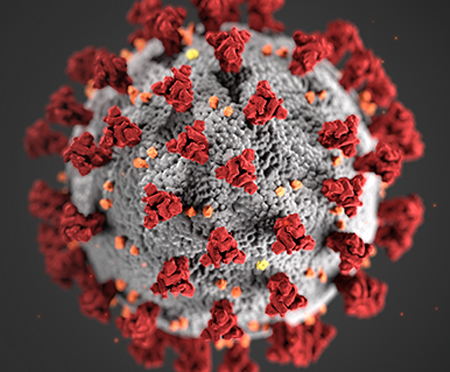TRI Participates in Rapid Response to SARS-CoV-2 Infection (COVID-19)
May 2020

The first quarter of 2020 saw the harsh reality of a global health emergency set in, as the novel coronavirus spread across the world, the respiratory illness now known as COVID-19. As the regional disease became a global pandemic, TRI has supported the search for effective treatments and vaccines, and successfully met the challenges in supporting our study sponsors.
TRI has extensive experience supporting studies on H7N9 and H1N1 flu and Ebola in the U.S. and globally. Leveraging this experience, we were able to utilize established mechanisms based on rigorous Standard Operating Procedures in accordance with ICH GCP and applicable FDA and local health authority regulations. We collaborated with study sponsors on risk assessment for patient safety and data integrity and considered how our standard processes could be adapted without compromising either.
To provide rapid support, we accelerated processes as needed and appropriate. TRI assisted with site activations, and protocol and site registration to the ClinicalTrials.gov website, working closely with the CT.gov review team to permit an increase in the frequency of updates. We also assisted with rapid regulatory submissions, to meet expedited requirements. Through prioritization and expedited procedures, and the dedication and commitment of our staff, we were able to complete study start up for some trials in less than a third of the usual time.
Our Site Monitoring team trained and deployed monitors across regions to meet dynamic priorities. For international sites, we worked with local offices to identify resources, and conducted training across countries (and time zones) as quickly as possible. We arranged document translations into local languages on a ‘rush’ basis. As hospitals began restricting on-site monitoring visits, we shifted to remote monitoring procedures to view and assess facilities and equipment.
Clear and efficient communication was a key success factor encompassing these services. Frequent, sometimes daily, teleconferences occurred with sponsors. We provided daily updates, and weekly reports on planned and completed activities. Internal tracking tools and cross-team communications kept staff informed of changing priorities, sponsor partners, and roles in our collective efforts.
TRI is constantly analyzing our experience with our rapid-response approaches. We review each process and examine any gaps; consider modifications for improvement and develop additional process documents as needed. Our experience and lessons learned from COVID-19 have prepared us to meet future challenges.
About the Authors
Shari Pearson, PhD is a Clinical Project Manager with over 19 years of experience in clinical research and biomedicine. She has managed clinical trials in the U.S. and internationally.
Neta R. Nelson, MPH is an Associate Director of Clinical Operations, with over 30 years’ experience in biomedical and clinical research. She has managed global clinical trials for pharmaceutical companies and CROs..

